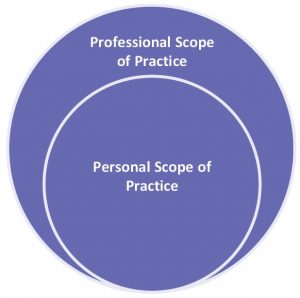INTRODUCTION
Scope of Practice of Respiratory Therapists
The scope of practice outlined in the Respiratory Therapy Act (RTA) states:
The practice of respiratory therapy is the providing of oxygen therapy, cardio-respiratory equipment monitoring and the assessment and treatment of cardio-respiratory and associated disorders to maintain or restore ventilation (RTA. s.3)
While the professional scope of practice, as defined by the RTA, is broad, each RT has their own personal scope of practice that is influenced by factors such as their role within their specific practice setting. It is important to remember that having the authority to perform a controlled act does not mean it is appropriate to do so. The CRTO’s Standards of Practice states that a Respiratory Therapist must practice within both the professional scope of practice and their personal scope of practice (Standard 4 – Competence/Ongoing Competence).
It is also important to note that not all tasks that might fall under a particular authorized act are within the scope of practice of Respiratory Therapy.
Example…
“Administering a substance by injection or inhalation” is a controlled act authorized to RTs. This enables RTs to administer medications by injection that are within the RT scope of practice (e.g., flu vaccines, procedural sedation, etc.). However, medications such as forms of botulinum toxins (i.e., Botox) are outside of the RT scope of practice. Therefore, to administer those types of substances, a formal delegation and educational process is required.

